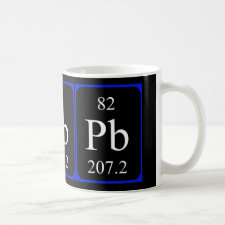
Authors: Zhu C, Hu TJ, Tang L, Zeng GM, Deng YC, Lu Y, Fang SY, Wang JJ, Liu YN, Yu JF
Article Title: Highly efficient extraction of lead ions from smelting wastewater, slag and contaminated soil by two-dimensional montmorillonite-based surface ion imprinted polymer absorbent.
Publication date: 2018
Journal: Chemosphere
Volume: 209
Page numbers: 246-257.
DOI: 10.1016/j.chemosphere.2018.06.105
Alternative URL: https://www.sciencedirect.com/science/article/pii/S0045653518311809
Abstract: The rapid, efficient and selective extraction of heavy metal ions is significant for wastewater pretreatment and metal ion recycle. Using montmorillonite as the template substrate and Pb2+ as template ions, a novel two-dimensional montmorillonite-based surface ion imprinted polymer (IIP-MMT) adsorbent is successfully synthesized via activators generated by electron transfer for atom transfer radical polymerization (AGET-ATRP). Batch adsorption experiments are performed to assess the properties of the imprinted polymer sorbent, along with its selectivity and reusability in practical extraction of Pb2+. It is interesting that the crosslinking density of the imprinted polymer has impact on the sorption property, where suitable density is coupled with the highest adsorption capacity and the best selectivity. Benefiting from the surface-imprinting technique and AGET-ATRP, IIP2-MMT is proved to own a highly effective Pb2+ adsorption capacity to reach 158.68 mg/g within 30 min, where the corresponding maximum adsorption capacity is 201.84 mg/g. Moreover, this material exhibits satisfactory stability and reusability that the high adsorptive capability of IIP-MMT retains more than 95% after six cycles. Thus, it is expected to reduce the wastewater disposal expenses. Besides, owing to the characteristics of PHEMA brushes and SHA chelating ligand, IIP-MMT has strong anti-interference and anti-blockage abilities to extract Pb2+ from smelting wastewater, slag and contaminated soil. Considering the low cost, excellent stability, high extraction efficiency, environmental friendliness, it is expected that the proposed material is very promising for treatment of heavy metals-contaminated wastewaters and soil, or ion recycle
Template and target information: lead ions, Pb(II)
Author keywords: montmorillonite, AGET-ATRP, surface imprinting, selective extraction, Lead recovery



Join the Society for Molecular Imprinting

New items RSS feed
Sign-up for e-mail updates:
Choose between receiving an occasional newsletter or more frequent e-mail alerts.
Click here to go to the sign-up page.
Is your name elemental or peptidic? Enter your name and find out by clicking either of the buttons below!
Other products you may like:
 MIPdatabase
MIPdatabase









